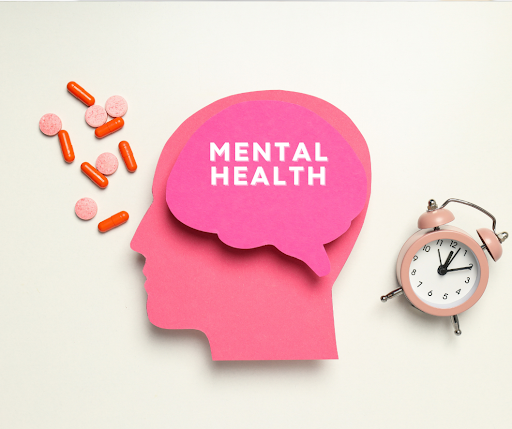Mental health is a critical aspect of overall well-being, yet it is often overlooked or misunderstood. As the stigma surrounding mental health continues to diminish, more individuals are seeking help for their mental health concerns. One question that frequently arises is whether urgent care facilities can provide assistance for mental health issues. This article explores the role of urgent care in mental health treatment, the limitations of these facilities, and alternative options such as telehealth services.
 Understanding Urgent Care Facilities
Understanding Urgent Care Facilities
Urgent care centers are designed to provide immediate medical attention for non-life-threatening conditions. These facilities are typically open outside of regular office hours and can handle a variety of medical issues, including minor injuries, infections, and illnesses. However, the extent of their capabilities regarding mental health is often less clear.
What Services Do Urgent Care Centers Offer?
Urgent care centers primarily focus on physical health concerns, but many are equipped to handle some mental health crises. Common services might include evaluations for anxiety, depression, or acute stress reactions. In some cases, urgent care staff may provide short-term treatment or medication to stabilize a patient in crisis.
However, it is essential to note that urgent care facilities are not equipped to provide comprehensive mental health care. They typically do not have the resources for long-term treatment or the specialized training that mental health professionals possess. Instead, they serve as a bridge to more extensive care, ensuring that individuals in distress can receive immediate attention while being directed to appropriate mental health services for ongoing support.
When to Visit Urgent Care for Mental Health Issues
Urgent care can be a viable option for individuals experiencing acute mental health crises, such as panic attacks or severe anxiety episodes. If someone is feeling overwhelmed and needs immediate support, seeking help at an urgent care center may be appropriate. These facilities often have trained personnel who can assess the situation and provide immediate interventions, such as calming techniques or referrals to mental health specialists.
However, for ongoing mental health issues, such as chronic depression or anxiety disorders, it is advisable to seek care from a mental health professional who can provide a tailored treatment plan. Urgent care should be viewed as a stopgap solution rather than a long-term answer. It is also worth noting that many urgent care centers are beginning to recognize the importance of mental health and are implementing training programs for their staff to better address these issues. This shift reflects a growing awareness of the intersection between physical and mental health, highlighting the need for a more integrated approach to patient care.
Limitations of Urgent Care for Mental Health
While urgent care facilities can provide immediate assistance, several limitations exist when it comes to mental health treatment. Understanding these limitations can help individuals make informed decisions about their care.
Short Consultation Times
One of the primary limitations of urgent care is the brevity of consultations. Patients may only receive a few minutes of attention from a healthcare provider, which is often insufficient for a thorough assessment of mental health issues. This lack of time can result in misdiagnosis or inadequate treatment recommendations.
Moreover, the hurried nature of urgent care visits may prevent patients from fully expressing their concerns or receiving the compassionate care they need. Mental health issues often require a more in-depth discussion and a relationship of trust between the patient and provider. A rushed appointment can leave patients feeling frustrated and unheard, potentially exacerbating their mental health challenges.
Lack of Specialized Staff
Urgent care centers generally employ general practitioners or emergency medicine physicians who may not have specialized training in mental health. This can limit their ability to provide effective care for complex mental health conditions.
In contrast, mental health professionals, such as psychologists and psychiatrists, have extensive training in diagnosing and treating mental health disorders. They are equipped to offer therapy, medication management, and long-term support that urgent care centers cannot provide. Furthermore, specialized mental health practitioners often utilize evidence-based practices tailored to individual needs, which is critical for effective treatment outcomes.
Follow-Up Care Challenges
Another significant limitation of urgent care for mental health is the challenge of follow-up care. After an urgent care visit, patients may receive recommendations for further treatment, but navigating the mental health system can be daunting. Many individuals may find it difficult to schedule appointments with mental health professionals, leading to gaps in care.
In addition, urgent care facilities do not typically have a system for tracking patients' mental health progress over time, which is crucial for effective treatment. This lack of continuity can hinder recovery and lead to a cycle of repeated urgent care visits without addressing the underlying issues. Patients may also struggle with the stigma associated with seeking mental health care, which can further complicate their willingness to pursue follow-up appointments or engage in ongoing therapy. The absence of a supportive framework can leave individuals feeling isolated and overwhelmed, making it even more challenging to address their mental health needs effectively.
Telehealth as an Alternative for Mental Health Care
In recent years, telehealth has emerged as a powerful alternative for individuals seeking mental health care. With the rise of digital health platforms, patients can access mental health services from the comfort of their homes, making it easier to receive the care they need.
Benefits of Telehealth for Mental Health
Telehealth offers several advantages over traditional in-person visits, particularly for mental health care. One of the most significant benefits is accessibility. Patients can connect with mental health professionals regardless of their location, eliminating barriers such as transportation and geographical limitations.
Furthermore, telehealth appointments can often be scheduled more flexibly, accommodating busy lifestyles and reducing the time spent waiting for an appointment. This convenience can encourage individuals to seek help sooner rather than later, which is crucial in mental health treatment. Additionally, the anonymity provided by virtual consultations can help reduce the stigma that often surrounds mental health issues, making individuals more likely to reach out for support.
Doctronic: A New Era of Telehealth
As telehealth continues to evolve, platforms like Doctronic are leading the charge in providing accessible, high-quality mental health care. Doctronic offers AI-driven consultations that allow patients to receive personalized care tailored to their specific needs.
With Doctronic, individuals can have free AI doctor visits that provide immediate answers to their health questions, including mental health concerns. This innovative approach not only saves time but also ensures that patients receive accurate information based on the latest peer-reviewed medical research. Moreover, Doctronic's use of advanced algorithms enables the platform to learn from patient interactions, continuously improving the quality of care and recommendations provided. This adaptability is crucial in mental health, where individual experiences and responses to treatment can vary widely.
In addition to personalized consultations, Doctronic also features a wealth of resources, including articles, videos, and interactive tools designed to educate users about mental health topics. This comprehensive approach empowers patients to take an active role in their mental health journey, fostering a sense of agency and understanding that is often vital for effective treatment. By integrating technology with mental health care, platforms like Doctronic are not only enhancing access but also redefining how individuals engage with their mental well-being.
When to Seek Help Beyond Urgent Care
While urgent care can provide immediate assistance for acute mental health issues, it is essential to recognize when to seek more comprehensive help. Understanding the signs that indicate a need for specialized care can empower individuals to take charge of their mental health.
 Recognizing the Signs of Mental Health Distress
Recognizing the Signs of Mental Health Distress
Individuals experiencing persistent feelings of sadness, anxiety, or hopelessness should consider seeking help from a mental health professional. Other signs that may indicate the need for specialized care include changes in sleep patterns, appetite, or energy levels, as well as difficulty concentrating or engaging in daily activities.
If someone is experiencing thoughts of self-harm or suicide, it is crucial to seek immediate help from a mental health crisis center or emergency services. Urgent care may provide initial support, but ongoing care from a mental health professional is essential for recovery.
The Importance of Long-Term Mental Health Care
Long-term mental health care is vital for individuals dealing with chronic conditions. Mental health disorders often require ongoing treatment, including therapy and medication management. Establishing a relationship with a mental health professional can provide the support and guidance needed for recovery.
Regular check-ins and therapy sessions can help individuals develop coping strategies, work through challenges, and monitor their progress. This continuity of care is essential for achieving lasting mental health improvements.
Moreover, long-term care allows for a deeper understanding of the individual’s unique experiences and triggers. Mental health professionals can tailor treatment plans that evolve with the patient’s needs, incorporating various therapeutic approaches such as cognitive-behavioral therapy (CBT), mindfulness practices, or even group therapy settings. These personalized strategies can significantly enhance the effectiveness of treatment, fostering resilience and promoting a healthier mindset over time.
Additionally, the journey of mental health recovery is often non-linear, with individuals experiencing ups and downs. Having a consistent support system in place through long-term care can provide reassurance and stability. Family involvement, support groups, and community resources can also play a crucial role in creating a nurturing environment that encourages individuals to share their feelings and experiences, ultimately leading to a more holistic approach to mental wellness.
Navigating Mental Health Care Options
In conclusion, while urgent care can provide temporary relief for acute mental health issues, it is not a substitute for comprehensive mental health care. Understanding the limitations of urgent care facilities is crucial for individuals seeking help. For those experiencing ongoing mental health concerns, telehealth services like Doctronic offer a promising alternative, providing accessible and personalized care.
By recognizing the signs of mental health distress and seeking appropriate help, individuals can take proactive steps toward improving their mental well-being. Whether through urgent care for immediate needs or long-term support from mental health professionals, the journey to better mental health is a vital one that should not be overlooked.
Experience the Future of Mental Health Care with Doctronic
When it comes to managing your mental health, waiting is not an option. With Doctronic, you can bypass the wait times and uncertainty. Our AI-powered platform offers free, immediate AI doctor visits that provide you with accurate health information and treatment recommendations based on the latest peer-reviewed medical research. If you need more personalized care, our telehealth video visits connect you with real doctors 24/7, across all 50 states, for less than $40. Join over 10 million people who have already experienced the smarter, faster, and more personal medical care that Doctronic provides. Skip the line. Talk to an AI Doctor Now, for free.



 Understanding Urgent Care Facilities
Understanding Urgent Care Facilities Recognizing the Signs of Mental Health Distress
Recognizing the Signs of Mental Health Distress